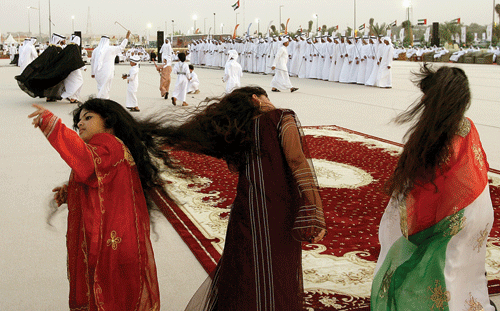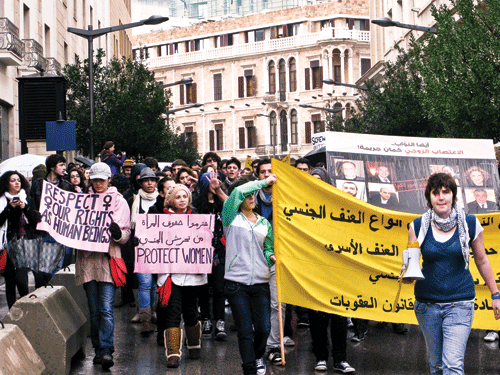Sheikh Khalifa bin Zayed al-Nahyan, president of the United Arab Emirates, made an important move in November for the rights of women in the region. He proposed changing the law that long discriminated against Emirati women married to foreigners by denying them the right to pass on their citizenship to their children. “Children of female citizens married to foreigners should be treated as citizens,” he said.
The president’s proposal signals an important policy shift in a region that has long discriminated blatantly against women. The policy in many countries in the region — Lebanon, Jordan, Syria, Qatar, Oman, Kuwait and Saudi Arabia — flows from fears over race, ethnicity and demographics. Children of Emirati women married to foreign or stateless men remain noncitizens — even if they are born in the UAE and never leave. As in most Arab countries, the UAE’s citizenship laws specify that it is the father’s nationality that determines the child’s, not the mother’s or both parents’.
The proposed reform in the UAE would make the children concerned eligible for citizenship only when they reach the age of 18. But they would be able to get the better education and health care benefits available for Emirati children earlier. And when they are older and granted citizenship they would be able to enroll in a university and apply for government posts, options now denied to them.
One key issue would be whether the children of Emirati women married to Bidun — the estimated 20,000 to 100,000 people considered stateless who have been historically neglected in the UAE — would qualify. Media reports have said that this measure will probably include their children but the government’s position is not yet clear. On December 14, the UAE set up a committee to compile a list of eligible children who would benefit from this new measure.
The issue of the Bidun children is critical because only about 12 percent of UAE residents are Emirati nationals, with foreign residents and stateless Bidun making up the rest. The number of Emirati women marrying foreigners also rose 15 percent from 2009 to 2010, from 643 to 737, according to the UAE’s National Bureau of Statistics.
The lack of citizenship has had a direct impact on children of Emirati women because under the current law, these children do not get the generous state benefits available to citizens under 18, and they often have access only to second-rate education and health care. The UAE offers free primary education to Emirati children. In some emirates, non-citizen children can enroll in public schools at no cost only if they score 90 percent on their entrance exams. Those with resources can attend private schools, but many children of Emirati women, particularly those married to Bidun men, cannot afford the tuition. The net result is that there are children of Emirati women who simply do not attend school.
Families whose children are not citizens also must pay for routine health care for their children, even basic care such as immunizations, while health care is free for Emirati children with citizenship. Bidun children, because of their stateless status, cannot travel outside the country, which further limits their families’ options.
While the number of children who will benefit from the UAE’s change remains to be seen, Sheikh Nahyan’s pronouncement was a step in the right direction, and he has painted an optimistic picture for Emirati women married to foreign husbands and their children. The hope now is that other Arab countries that discriminate against women and their children this way will follow his lead.
Every day in our region, women pay the price for discriminatory laws, but the UAE has made the moral choice, and in the long run the UAE will benefit because its children will be healthier and better educated. The progressive leadership it is showing in the region for the rights of women and children will also be recognized around the world. If the UAE, a country deeply worried about its demographics, can make this decision, it is high time that other Arab states follow suit.












